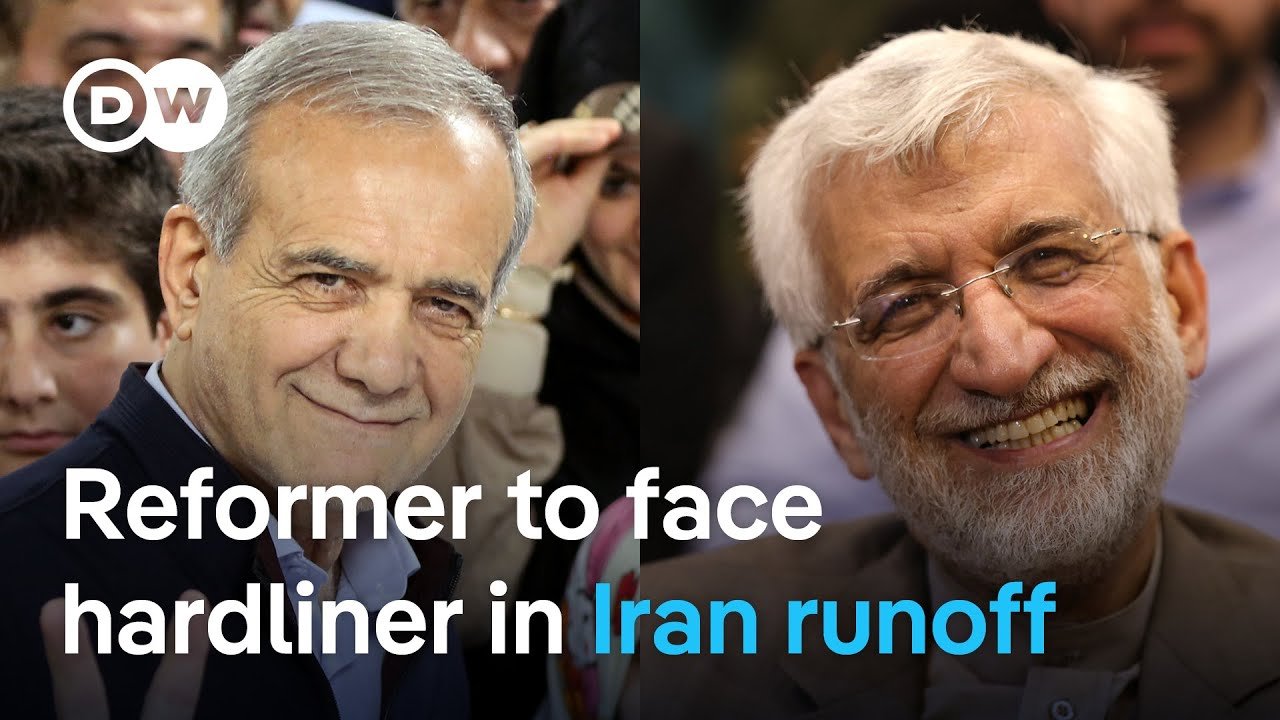In the upcoming presidential runoff in Iran, reformist Masud Pesan is slightly ahead of conservative S Jal, following an election marred by historically low voter turnout at only 40%. This election comes after the death of President Ibrahim Raisi in a helicopter crash, with Iranians showing a pronounced dissatisfaction with the political process, evidenced by the low participation. Experts suggest that while the election of Pesan might not herald dramatic changes within Iran, it could potentially lead to a renewed interest in negotiating a nuclear deal to lift sanctions. Despite this, there’s widespread skepticism about the capacity for real change, given the structural limitations set by the Islamic Republic’s founders and the supreme leader’s ultimate control over the country’s political landscape.
- Iranians will return to the polls for a runoff presidential vote after no candidate won a majority in the first round, following President Ibrahim Raisi’s death.
- Reformist Masud Pesan leads slightly over conservative S Jal, amidst a record low voter turnout of 40%.
- The low turnout reflects a general non-confidence in the Iranian regime by the population, indicating a significant gap between the public and the political system.
- Experts believe that the election of Pesan could increase the chances of Iran returning to some form of a nuclear deal to relieve sanctions, though they remain cautious about the potential for significant change within the country.
- There’s a notable clash within the Iranian opposition between those advocating for change from within the system by participating in elections and those calling for a boycott.
- Despite the upcoming runoff, analysts and human rights advocates argue that structural obstacles and the supreme leader’s ultimate authority severely limit the potential for substantive reform, regardless of the election outcome.
- Widespread disillusionment with the political elite, corruption, and severe crackdowns on protests contribute to the low expectations of change among the Iranian populace.
- Women, in particular, are highlighted as being at the forefront of defiance against the state, with little incentive to participate in an election they see as unlikely to affect meaningful change in their lives.
DW News is a global news TV program broadcast by German public state-owned international broadcaster Deutsche Welle (DW).
AllSides Media Bias Rating: Center
https://www.allsides.com/news-source/deutsche-welle-media-bias
Official website: https://www.dw.com
Original video here.
This summary has been generated by AI.

Leave a Reply